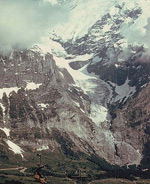
Types of Glaciers: Alpine Glacier
If you are a fan of watching the Winter Olympics, then you have probably seen the alpine skiing event. Named for the Swiss Alp mountains in which it originated, alpine skiing involves athletes speeding down steep mountain slopes covered with lots of snow on skis. These steep slopes also host many of the world’s glaciers. Glaciers that originate on high mountain slopes are appropriately called alpine glaciers.
Unlike Olympic skiers, who can reach speeds of 50 to 80 miles per hour, alpine glaciers move down slopes very slowly—only a few feet per day at most, but usually much slower than this. There are several sub-categories of alpine glaciers:
- valley glacier: a special kind of alpine glacier that flows through a valley
- cirque glacier: a special kind of alpine glacier that forms in an amphitheatre-like bowl-shaped depression on the side of a mountain
- piedmont glacier: a special kind of alpine glacier that emerges from the mountain front and spreads out as a large lobe at the foot of the mountain
- tidewater glacier: a special kind of alpine glacier that terminates in the sea
Study each image and see if can tell which kind of alpine glacier is shown. Roll over the images to see clues about each one.
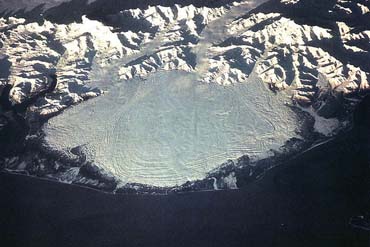
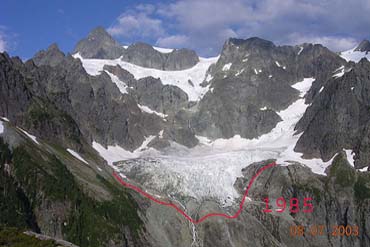
|
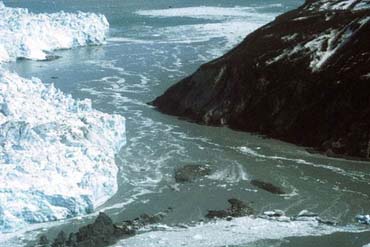
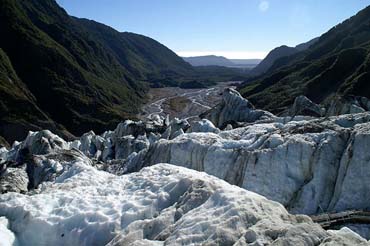
|